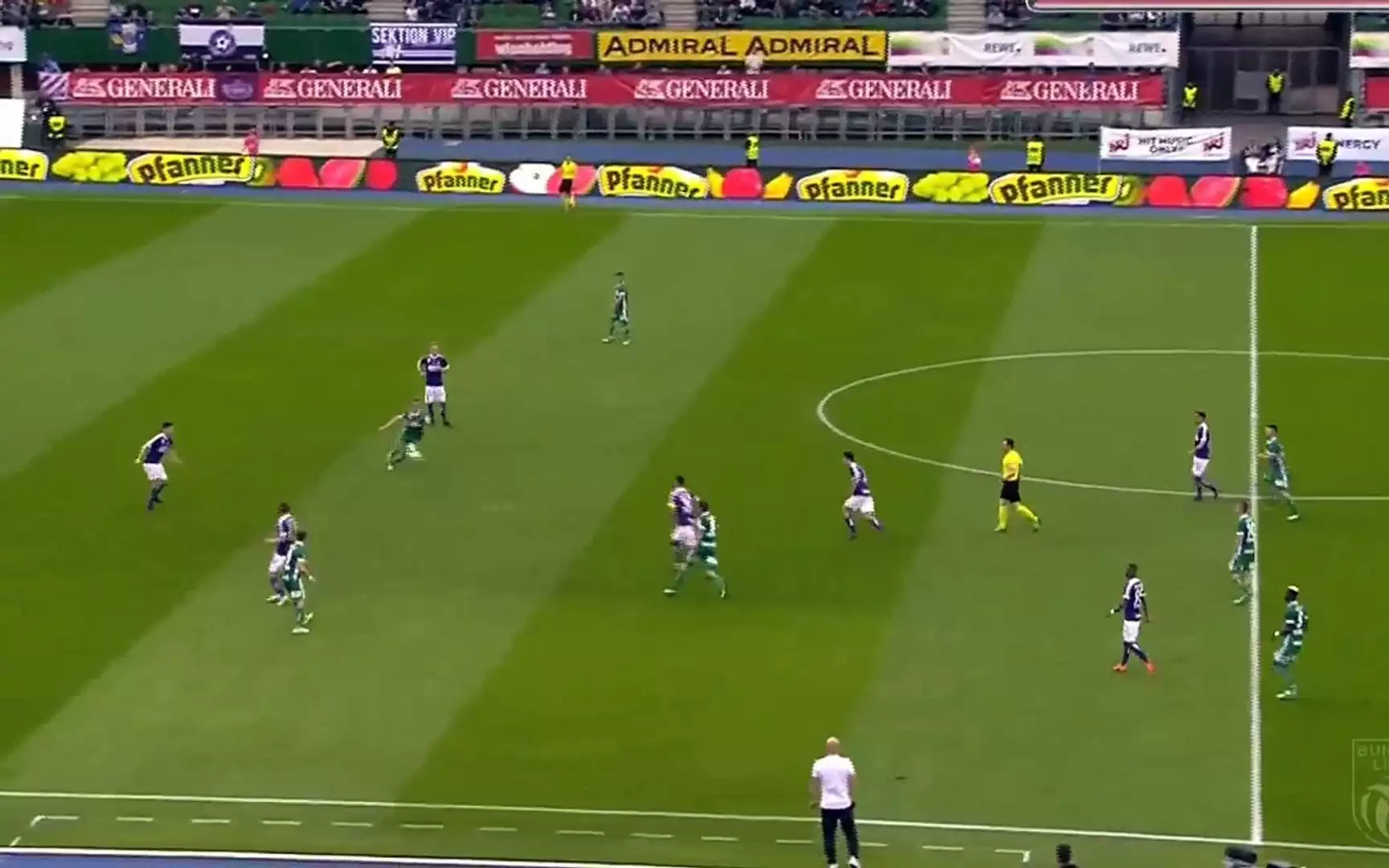Overview of the teams and players involved
In order to truly understand the magnitude of the 2006 Austrian Cup final, it is important to delve into the teams and players who participated in this monumental clash. On one side of the pitch stood FC Red Bull Salzburg, a powerhouse in Austrian football known for their attacking prowess and relentless determination. Led by their charismatic captain, Michael Wagner, Salzburg boasted a formidable lineup of talented individuals who were hungry for success.
Opposing them were Rapid Vienna, a club steeped in tradition and history. Rapid Vienna had a reputation for their strong defensive play and disciplined tactics. Under the guidance of their esteemed manager, Franz Huber, Rapid Vienna had become a force to be reckoned with in Austrian football. Their star player, Stefan Müller, was known for his lightning-fast pace and clinical finishing ability.
Key moments and highlights of the match
The 2006 Austrian Cup final was a match filled with drama and excitement from start to finish. The opening minutes set the tone for the rest of the game, with both teams displaying their attacking intent. It was Salzburg who drew first blood, with their striker, Thomas Fischer, finding the back of the net with a thunderous strike in the 15th minute. The stadium erupted in celebration as Salzburg took an early lead.
Rapid Vienna, however, were not to be outdone. Just five minutes later, their talismanic midfielder, Andreas Weber, unleashed a rocket of a shot from outside the box, leaving the Salzburg goalkeeper with no chance. The score was level once again, and the intensity on the pitch continued to rise.
As the match progressed, both teams had their fair share of chances. Salzburg came agonizingly close to taking the lead on multiple occasions, but Rapid Vienna's defense stood firm. Their goalkeeper, Markus Schmied, pulled off a series of acrobatic saves that left spectators in awe.
With the score tied at 1-1 and the clock ticking down, it seemed as though extra time was inevitable. However, in the dying moments of the match, Salzburg's winger, David Müller, produced a moment of magic. With lightning speed and impeccable skill, Müller dribbled past three defenders before slotting the ball into the bottom corner of the net. The stadium erupted once again, this time in pure ecstasy. Salzburg had secured a late, dramatic victory and etched their names into Austrian football history.
Impact of the 2006 Austrian Cup Final on Austrian football
The 2006 Austrian Cup final had a profound impact on Austrian football as a whole. It served as a catalyst for the growth and development of the sport in the country. The match captured the imagination of football fans across the nation, drawing attention to the talent and potential that existed within Austrian football.
Following the final, there was a surge in interest and investment in the sport. More young players were inspired to take up the game, and clubs began to prioritize the development of youth academies. The success of Salzburg and Rapid Vienna in the cup final also attracted international attention, leading to increased exposure for Austrian football on the global stage.
The final also had a significant economic impact, with ticket sales, merchandise, and sponsorship deals reaching unprecedented levels. The increased revenue allowed clubs to invest in state-of-the-art stadiums, training facilities, and player recruitment, further raising the standard of Austrian football.
Analysis of the winning team's tactics and strategies
Salzburg's victory in the 2006 Austrian Cup final can be attributed to a combination of skill, determination, and strategic brilliance. From the outset, it was clear that Salzburg's game plan was focused on attacking. Their players constantly pressed forward, applying relentless pressure on Rapid Vienna's defense. This aggressive approach forced Rapid Vienna to retreat and adopt a more defensive posture.
Salzburg's attacking prowess was complemented by their ability to quickly transition from defense to attack. Their midfielders were adept at winning the ball and distributing it to the forwards with precision. This fluidity in their play allowed them to catch Rapid Vienna off guard on numerous occasions.
Defensively, Salzburg were disciplined and organized. Their defenders maintained a high line, restricting Rapid Vienna's opportunities to exploit space behind the backline. The communication and coordination between the defenders and goalkeeper were impeccable, ensuring that any potential threats were swiftly dealt with.
Memorable performances and individual achievements
The 2006 Austrian Cup final witnessed several standout performances and individual achievements that added to the spectacle of the match. Thomas Fischer, Salzburg's striker, showcased his clinical finishing ability with his opening goal. His thunderous strike left the Rapid Vienna goalkeeper rooted to the spot and set the tone for the rest of the game.
On the other side, Stefan Müller, Rapid Vienna's star player, displayed his incredible pace and agility throughout the match. His goal in the 20th minute was a testament to his skill and composure under pressure. Müller's lightning-fast dribbling ability left defenders in his wake, and his goal was a well-deserved reward for his outstanding performance.
In addition to the goalscorers, the goalkeepers Markus Schmied and Michael Wagner also deserve recognition for their incredible saves and overall performance. Both shot-stoppers pulled off a series of acrobatic stops that defied belief and kept their respective teams in the game.
Reaction from fans and the media
The 2006 Austrian Cup final captured the hearts and minds of football fans across Austria and beyond. The atmosphere in the stadium was electric, with supporters from both sides creating an incredible spectacle. The passion and enthusiasm displayed by the fans added an extra dimension to the match, creating an unforgettable experience for all in attendance.
In the aftermath of the final, the media hailed the match as one of the greatest cup finals in football history. Newspapers and television channels dedicated extensive coverage to the game, analyzing every moment and discussing the impact it would have on Austrian football. Fans took to social media to express their joy and admiration for the players, creating a buzz that reverberated throughout the footballing world.
Legacy and significance of the 2006 Austrian Cup Final
The 2006 Austrian Cup final left a lasting legacy on Austrian football. It served as a reminder of the passion and skill that the sport possessed within the country. The match inspired a new generation of players and fans, reigniting the love for football across Austria.
The success of Salzburg and Rapid Vienna in the cup final propelled them to greater heights in the years that followed. Salzburg went on to dominate Austrian football, winning multiple league titles and establishing themselves as a powerhouse in European competitions. Rapid Vienna, too, enjoyed success, regularly qualifying for European tournaments and showcasing their strength in domestic competitions.
The 2006 Austrian Cup final also showcased the potential for underdog teams to compete against more established opponents. It proved that with determination, skill, and the right tactics, anything was possible in football. This newfound belief has since inspired teams from smaller leagues around the world to dream big and aim for greatness.










